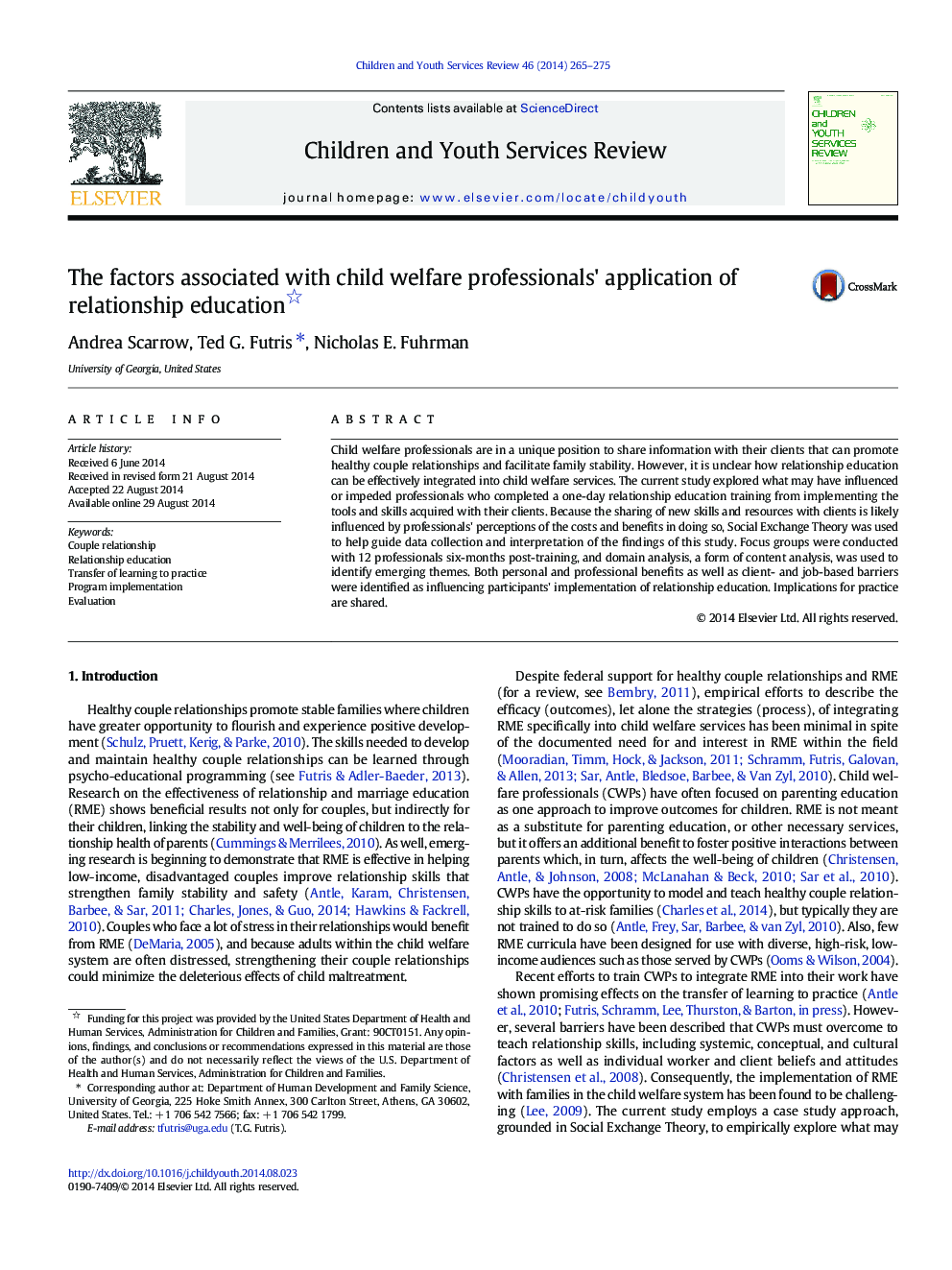| Article ID | Journal | Published Year | Pages | File Type |
|---|---|---|---|---|
| 6834191 | Children and Youth Services Review | 2014 | 11 Pages |
Abstract
Child welfare professionals are in a unique position to share information with their clients that can promote healthy couple relationships and facilitate family stability. However, it is unclear how relationship education can be effectively integrated into child welfare services. The current study explored what may have influenced or impeded professionals who completed a one-day relationship education training from implementing the tools and skills acquired with their clients. Because the sharing of new skills and resources with clients is likely influenced by professionals' perceptions of the costs and benefits in doing so, Social Exchange Theory was used to help guide data collection and interpretation of the findings of this study. Focus groups were conducted with 12 professionals six-months post-training, and domain analysis, a form of content analysis, was used to identify emerging themes. Both personal and professional benefits as well as client- and job-based barriers were identified as influencing participants' implementation of relationship education. Implications for practice are shared.
Related Topics
Health Sciences
Medicine and Dentistry
Perinatology, Pediatrics and Child Health
Authors
Andrea Scarrow, Ted G. Futris, Nicholas E. Fuhrman,
